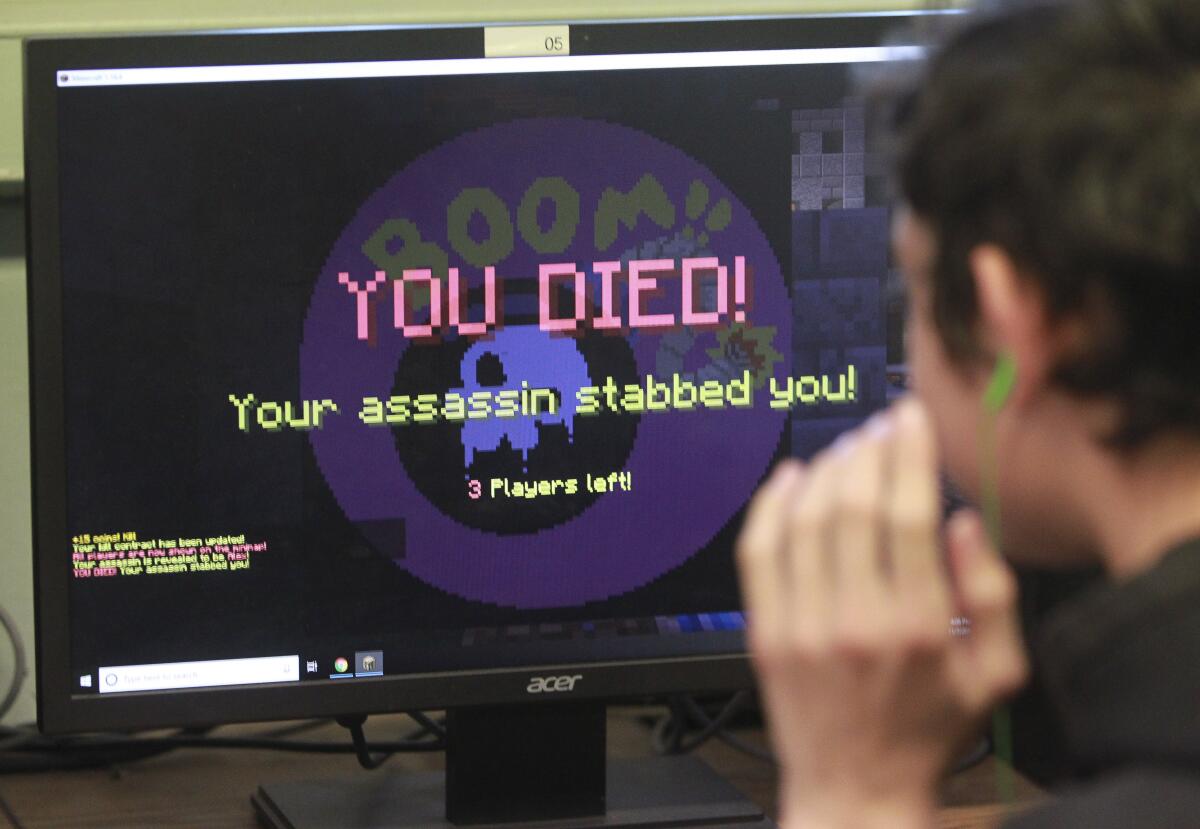‘The internet’s on fire’ as tech races to fix software flaw

- Share via
A software vulnerability exploited in the online game “Minecraft” is rapidly emerging as a major threat to internet-connected devices around the world.
“The internet’s on fire right now,” said Adam Meyers, senior vice president of intelligence at the cybersecurity firm Crowdstrike. “People are scrambling to patch and there are script kiddies and all kinds of people scrambling to exploit it.”
He said Friday morning that in the 12 hours since the bug’s existence was disclosed it had been “fully weaponized,” meaning that malefactors have developed and distributed tools to exploit it.
The flaw may be the worst computer vulnerability discovered in years. It opens a loophole in software code that is ubiquitous in cloud servers and enterprise software used across industry and government. It could allow criminals or spies to loot valuable data, plant malware or erase crucial information, and much more.
Uber has mishandled onboarding for transgender and nonbinary drivers, who faced rejected IDs, suspended accounts and safety concerns.
“I’d be hard-pressed to think of a company that’s not at risk,” said Joe Sullivan, chief security officer for Cloudflare, whose online infrastructure protects websites from malicious actors. Untold millions of servers have it installed, and experts said the fallout would not be known for several days.
Amit Yoran, chief executive of the cybersecurity firm Tenable, called it “the single biggest, most critical vulnerability of the last decade” — and possibly the biggest in the history of modern computing.
The vulnerability, dubbed “Log4Shell,” was rated 10 on a scale of one to 10 by the Apache Software Foundation. Anyone with the exploit can obtain full access to an unpatched computer that uses the software.
New Zealand’s computer emergency response team was among the first to report that the flaw was being “actively exploited in the wild” just hours after it was publicly reported Thursday and a patch released.
The vulnerability, located in open-source Apache software used to run websites and other web services, was discovered Nov. 24 by the Chinese tech giant Alibaba, the foundation said.
Elite grocery chain Erewhon is embarking on an aggressive expansion in Southern California. Started as a humble bulk grains outlet, its cult success is rewriting the rules of the supermarket business.
Finding and patching the software could be a complicated task. While most organizations and cloud providers should be able to update their web servers easily, the same Apache software is also often embedded in third-party programs, which often can be updated only by their owners.
Yoran, of Tenable, said organizations need to presume they’ve been compromised and act quickly.
The flaw’s exploitation was apparently first discovered in “Minecraft,” an online game hugely popular with kids and owned by Microsoft.
Meyers and security expert Marcus Hutchins said “Minecraft” users had already been using it to execute programs on the computers of other users by pasting a short message in a chat box.
Microsoft said it had issued a software update for “Minecraft” users. “Customers who apply the fix are protected,” it said.
Researchers reported finding evidence the vulnerability could be exploited in servers run by companies such as Apple, Amazon, Twitter and Cloudflare.
Cloudflare’s Sullivan said there was no indication his company’s servers had been compromised. Apple, Amazon and Twitter did not immediately respond to requests for comment.
More to Read
Inside the business of entertainment
The Wide Shot brings you news, analysis and insights on everything from streaming wars to production — and what it all means for the future.
You may occasionally receive promotional content from the Los Angeles Times.












